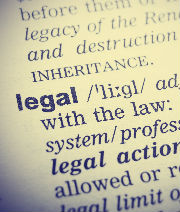
Legal Requirements for Contractors: Holding onto Your Records

11 November 2016
Contractors can set up their businesses as sole traders or owners of limited companies, or work under an umbrella company instead. In all cases, contractors have certain legal responsibilities in terms of keeping income and tax records for a period of time. They cannot keep records for a year and then immediately dispose of them as soon as their year-end paperwork is filed. The length of time records must be held on to depends on the taxes paid.
Umbrella Company Employees
Let's start with umbrella company contractors first, as their situation is the easiest to explain. A contractor working under an umbrella company is considered, under the law, an employee of that company. Umbrella company contractors need to keep two kinds of records:
- Personal Income Tax – All records relating to personal income tax and capital gains must be retained for 22 months after the tax year they are relevant to.
- Self-Assessment – Contractors who earn additional income above and beyond what is accounted for by the umbrella company must complete a self-assessment tax return. Those records should be kept for a minimum of five years.
Limited Company Directors
Limited company directors have more to deal with for obvious reasons. Their record-keeping responsibilities are as follows:
- Self-Assessment – Directors must file self-assessment tax returns to account for their personal income as employees of their limited companies. Records should be kept for a minimum of five years.
- Business Income/Taxes – All records of income and taxes relating to the business itself must be kept for a minimum of six years from the end of that year's accounting period.
- PAYE Records – Limited companies with employees will utilise the PAYE system to withhold and pay taxes for them. All PAYE records must be kept for three years following the relevant tax year. Records must account for all pay, benefits, and deductions.
- VAT – Limited companies required to collect and pay VAT have additional record-keeping responsibilities. All the records generated by VAT obligations must be kept for six years.
Sole Traders
Sole traders working as freelancers are in a unique position as far as taxes are concerned. All their income is reported using the self-assessment tax return. As such, they should be holding onto their records for five years from the end of the relevant tax year.
Keep Your Records for Your Own Protection
Taxpayers have a legal obligation to keep their records for a number of years just in case HMRC has any questions following the end of a given tax year. But more importantly, keeping records is about making sure contractors can document their income and taxes just in case HMRC decides to look more closely at their business dealings.
Contractors might also need to check on past transactions in the event a discrepancy arises with a client. It is always good to have records on hand for such purposes.
Keeping Records in the Cloud
Keeping records on-hand is part of business. One way to make it easier is to sign on with an online tax and accounting company that uses cloud-based software. Keeping records in the cloud reduces paperwork, creates redundancy, and ensures a contractor has the records he or she needs if there is any need to document income and taxes.
Remember that limited companies must keep accounting records, business records, and VAT records for a minimum of six years. Storing them in the cloud vis-a-vis an online accounting partner is one of the best ways to maintain compliance and simultaneously streamline accounting.




